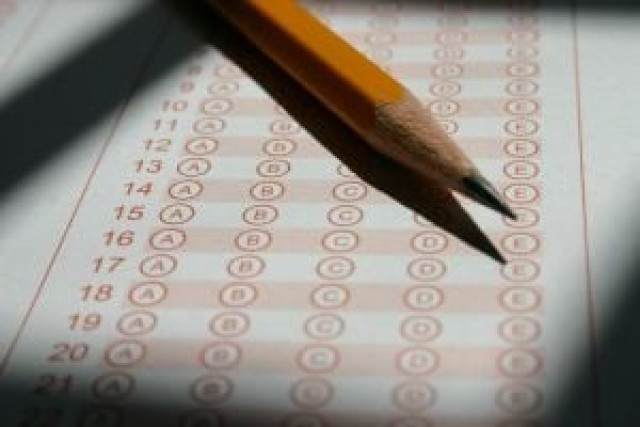Tougher exams mean less pass
There were a total of 15,527 students from 197 colleges in Karachi, out of this only 7,959 passed.

For pre-medical students who are aspiring to be doctors, the long hours of study did not bear well on the day of their Intermediate results. Most of them were disappointed not just with their results, but by the fact that the cut-throat competition for entry in government medical colleges, which has limited seats, may shatter their dreams of becoming doctors.
There were a total of 15,527 students who appeared in the exams from 197 colleges in Karachi. Out of this, only 7,959 could pass. The pass percentage last year was 52.1% and the total number of candidates who sat the exams was 14,812. This included 2,845 boys and 11,967 girls.
BIEK’s chairman, Anwar Ahmedzai, said the result was a positive change. While talking to The Express Tribune, he explained that board reforms had helped. “The change in the pattern of the question paper ensures that only those students who study the whole text will get a good grade,” said Ahmedzai. “The coded evaluation system ensures that there is no trickery or double dealing.” He explained that according to the changes made by BIEK, the question paper now has a lot of short questions instead of longer ones. He also said that the answer papers are checked by a code instead of the roll number of the student which is kept hidden from the examiner and the board also tried to restrict evaluation by telling examiners they could not take copies home to check.
“Although it may seem that the pass percentage has fallen, it is a good indicator because only those who studied hard managed to pass,” said Ahmedzai. “If you stop the papers from leaking, the pass percentages will eventually go down.”
There were four times more girls than boys and the pass percentage of girls was 54.39% as compared to boys which was 38.36%.
All the three top positions were also clinched by girls, two girls were from BAMM PECHS Government College for Women. They managed to achieve 90.36% and 90% and in third was a student from Aga Khan Higher Secondary School who managed to score 89.63%.
This year there are only 800 seats in Dow University of Health Sciences which is the main government-run medical college in Karachi.
Hence, for most of the students, the time to study is still not over. The pre-medical students are preparing for the admission tests to Karachi’s medical colleges which will be held on October 2.
Published in The Express Tribune, September 7th, 2011.



















COMMENTS
Comments are moderated and generally will be posted if they are on-topic and not abusive.
For more information, please see our Comments FAQ